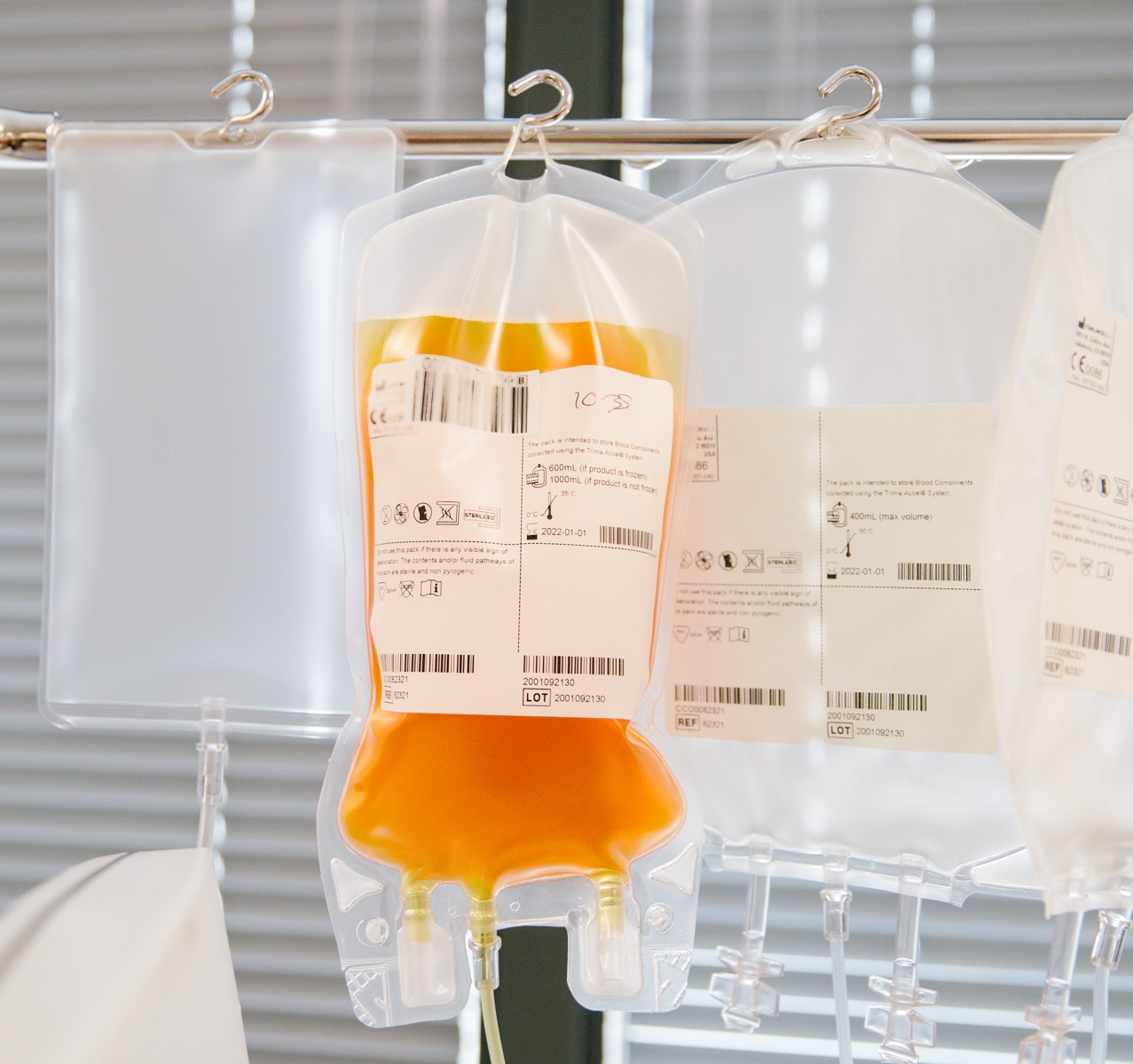UK plasma ban lifted
 NHSBT welcomes the decision by ministers to lift the ban on UK plasma for fractionation following a review by the Medicines and Healthcare products Regulatory Agency (MHRA) and the Commission on Human Medicines (CHM).
NHSBT welcomes the decision by ministers to lift the ban on UK plasma for fractionation following a review by the Medicines and Healthcare products Regulatory Agency (MHRA) and the Commission on Human Medicines (CHM).
UK plasma has now been deemed safe to use to produce immunoglobulins for Plasma Derived Medicine Products. NHSBT will be working closely with the Department for Health and Social Care (DHSC) and NHS England to operationalise this ministerial announcement as soon as possible.
NHSBT Chief Executive Betsy Bassis said:
“This is an exciting opportunity for the UK to reduce its dependence on the US for critical plasma-derived medicines on which so many patients depend.”
“We are so pleased that our donors’ gifts will now be able to save and improve even more lives in the years ahead. This is an exciting day for donors and patients alike.”
Plasma derived medicines are used every day to treat patients with compromised immune systems. There are thousands of patients in the UK who rely on these treatments. NHSBT will be working with NHSEI and DHSC to appoint a fractionator and supply recovered plasma from whole blood donations to be manufactured into medicines.
At present excess plasma from whole blood donations has not been able to be used due to the ban, but this change will mean that all parts of blood donation can now be used for the benefit of UK patients.
Donors will see no change to how blood is collected but the excess plasma that we recover from their donations will be supplied to a fractionator, once they are appointed by NHS England.
This announcement does not impact on the ongoing collection of convalescent plasma to treat patients with COVID-19.
